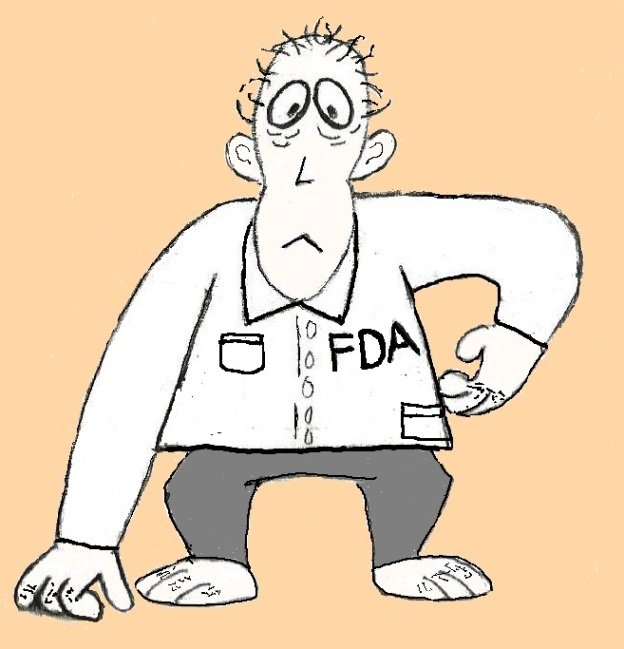- Home
- Toxic Chemicals & Health
- Chronic Diseases
5 Chronic Diseases Linked to Toxins
Chronic diseases are on the rise and while we may be living longer, we are not living healthier. Diseases are caused by a variety of things. Mounting evidence suggests a major player in chronic disease is exposure to environmental toxins. Here are five diseases with strong links to toxins.
1. Cancer
The link between
cancer and environmental toxins is a strong one that’s been around a while. For example, it’s common knowledge that the toxins in cigarettes cause lung cancer. Nobody
disputes that anymore. And this early link between toxins and cancer has expanded to include other toxins and other types of cancer.
For example, about ten per cent of lung cancers occur in
non-smokers. We now know that exposure to toxins like asbestos, radon or diesel exhaust is often to
blame.
What about all the other types of cancers? The 1 in 2 men and 1 in 3 women that will get cancer during their lifetime. Right now there are 241 substances on the list of known or probable carcinogens. Some of the toxins with the strongest links to cancer include:
- Endocrine disrupters like BPA, and parabens are linked to breast and prostate cancer.
- Many pesticides, like atrazine, are linked to breast and prostate cancer.
- Arsenic and the byproducts of water disinfection that show up in your drinking water are linked to bladder cancer.
- Asbestos and radon are linked to lung cancer
- The nitrites and heme iron in red and processed meat are linked to lung, bladder, gastric, esophageal and colorectal cancer.
2. Heart Disease

According to the CDC, heart disease is the leading cause of death for both men and women and accounts for 1 in 4 deaths in the U.S. I’m sure you’re aware that diets high in saturated fats and cholesterol, obesity and not getting any exercise are key contributing factors to heart disease.
There are also several chemical toxins that are linked to the disease. The link between exposure to arsenic in drinking water and heart disease has probably been the most studied. One study estimated that for every 15 mg/L (micrograms per liter) increase of arsenic in your drinking water, the risk for heart disease increased by 38 percent.
While studies have not directly looked at the health effects of exposure to arsenic in foods like brown rice, arsenic is arsenic, whether you eat it or drink it. While the feds have set the safe level of arsenic in public drinking water at 10 mg/L, there are no safety guidelines for brown rice.
Toxins that have been linked to heart disease include:
3. Diabetes
The CDC estimates that 9.3% of the U.S. population has diabetes, a disease in which blood glucose levels are above normal. When you have diabetes, your body either doesn't make enough insulin or can't use its own insulin as well as it should. This causes sugar to build up in your blood.
Insulin is a hormone produced by the pancreas, which is part of the endocrine system, making it a prime target for endocrine disrupting chemicals like BPA, phthalates and many different types of pesticides.
Various POPs (persistent organic pollutants) also contribute to the current epidemic of type 2 diabetes. POPs love to hang out in your body fat and take years, and sometimes decades, to break down in your body and the environment. Even though many of these POPs have been banned, like DDT, they continue to affect your health.
Just like with heart disease and cancer, arsenic also has a hand in causing diabetes. A 2013 study found that for every 15 mg/L increase in arsenic concentration in drinking water, the risk for diabetes increased by 27%.
Toxins that are linked to diabetes include:
|
BPA Phthalates Organophosphate pesticides Carbamate pesticides Neonicotinoid pesticides |
DDT PCBs (polychlorinated biphenyl) HCB (hexachlorobenzene) Arsenic |
4. Parkinson's Disease
Parkinson’s Disease (PD) is the second most common neurodegenerative disorder. Parkinson’sinfo.org suggests only around 5 percent of cases are hereditary. In the vast majority of cases it is believed that there are a variety of causes, including exposure to toxins and severe head injuries.
Of all the toxins that are believed to contribute to Parkinson’s, pesticides seem to have the strongest link. Any chemical that is a neurotoxin can affect your brain and nervous system. Pesticides, especially insecticides, are a prime example.
A 2013
UCLA study reported that if you frequently use any household pesticide your odds of getting Parkinson’s Disease
increases by 47%. If you frequently use
organophosphate pesticides (OPs),
the odds of PD increase by 71%.
(Organophosphate pesticides are phosphorus-based compounds that kill insects upon contact by affecting the
normal function of the nervous system.)
The EPA banned most residential uses of organophosphates in 2001, but they are still sprayed agriculturally on fruits and vegetables. Some of the more commonly used
organophosphates include diazinon,
parathion, carbamate carbaryl (Sevin),
chlorpyrifos, and malathion.
The specific pesticides that are linked to PD include:
|
Insecticides: |
Herbicides: |
5. Obesity
Obesity became an official disease in 2014. And considering that more than 35% of us are considered obese, it’s a pretty common disease. Inactivity and high fat and high calorie diets are common causes of obesity. But these factors don’t explain the current epidemic. Researchers are now examining the role that environmental toxins plays in the world’s obesity problem.
Many of the toxins linked to obesity are endocrine disrupters. Because fat cells act much like an endocrine organ, releasing hormones related to your appetite and metabolism, they are prime targets for endocrine disrupting toxins.
While researchers are just beginning to dig into the link between obesity and toxins, some studies found the following chemicals may contribute to obesity.
Organophosphate
Insecticides
BPA
PFCs
(Polyfluoroalkyl Compounds)
Phthalates

Now, it doesn’t mean you’re going to get a chronic disease just because you’ve been exposed to toxins. We’ve all been exposed to toxins and many of us live long healthy lives. Diseases are usually caused by a combination of things that include genetics, lifestyle and toxin exposure.
You can’t do anything about your genes but you sure can lead a healthy life that includes reducing your exposure to toxins. Making safer choices in the foods you eat, the cookware and personal care products you use, and avoiding plastic and toxic pesticides can all protect your health.
Other Posts You May Like
 How To Detox Your Body Part II How To Detox Your Body Part II |








